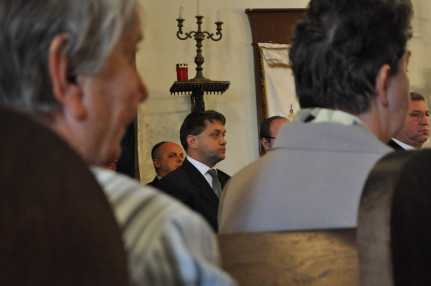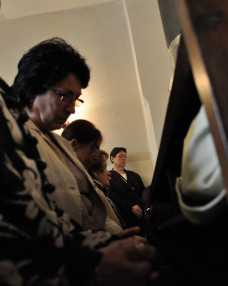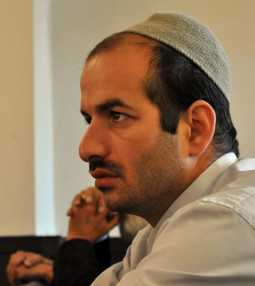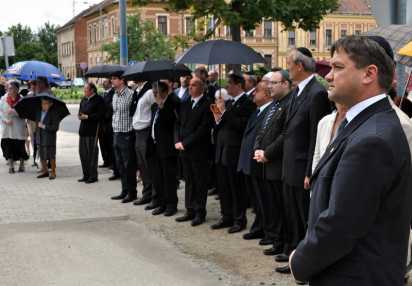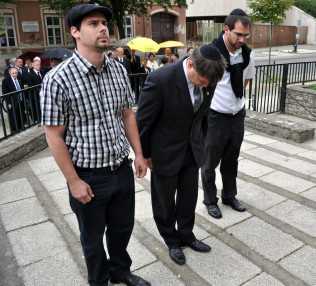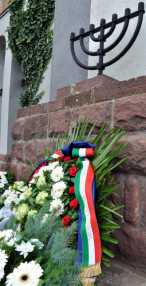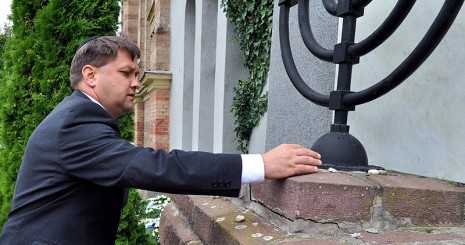“We Belong Together with the Victims”
Szöveg: Gábor Kálmánfi | 2011. július 7. 6:51“In the dark period of Hungarian history, the state and a part of the nation “had been weighed in the balances and found wanting”. We belong together with the victims and by remembering them we declare that we belong together in the present as well” pointed out MoD Cabinet Chief Dr. Gábor Szarka on July 3 at the commemoration of the Holocaust held by the Jewish Community of Szombathely on the occasion of the 67th anniversary of the deportations.
In his speech he also mentioned that in that trying period the nation “had been weighed in the balances and found wanting". Dr. Gábor Szarka said the Hungarian state “ignored, and what is more, supported the deprivation of civil rights and slaughter". He added that a considerable part of the nation neither understood nor felt “what was actually happening and did not have the power to act against it".
"We must keep in mind that among us there were killers who, collaborating with the occupiers, took part in the execution of the Holocaust. At the same time we must also remember that some of us acted as they had to. These people were anonymous heroes and heroes whose names are known to us, who behaved humanly even when they were not expected to do so. They set a shining example to us of what we should do in infernal times. Today every Hungarian citizen must know and feel that they can live in safety and that everyone is important. We are counting on everybody in renewing Hungary. Whenever we remember, we declare that we belong together" Dr. Gábor Szarka closed his speech.
At the commemoration the message of Aliza Bin-Noun, Israel’s Ambassador to Hungary was read out, in which the Ambassador wrote, among others that the memory of the slaughtered should remain an eternal warning. “The horrors must be said, so that we shall never forget the victims. If we do not name the acts and those who committed them, we cannot remember authentically the process that led to the annihilation of millions of people in the darkest era of the 20th century. Each discriminatory word, attitude and act may incite hatred among people and groups of people. Hate speech and freedom of speech should be clearly separated" declared the Ambassador.
Tivadar Puskás, the mayor of Szombathely reminded us in his speech that with the deportation of the Jewish community of Szombathely, the town had lost 4,228 esteemed citizens; doctors, lawyers, artists, craftsmen and merchants, that is, more than ten per cent of its then population.
Paying tribute to the memory of martyrs deported from Szombathely and its neighborhood, the Chief of Cabinet laid a wreath on the memorial column in front of the former synagogue. Following the wreath-laying ceremony, the event ended with a memorial service held at the monument of martyrs and the inmates of forced labor camps in Bercsényi Cemetery, Szombathely.
(Click on our gallery for more pictures!)
Photos by the author
